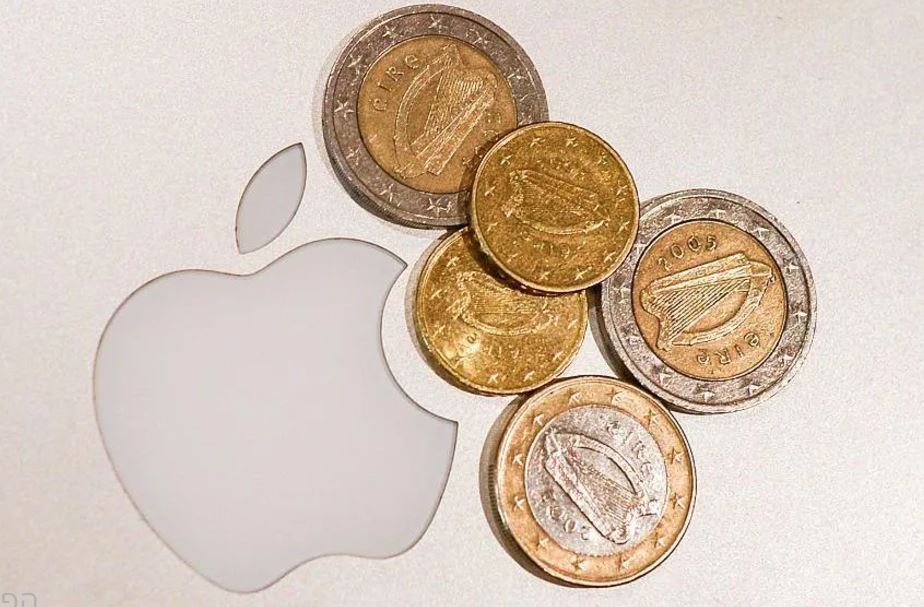
How could the Apple tax windfall be spent in Ireland?

Published on: 24 Nov Sun
In September, the EU’s highest court ruled that the US technology firm had benefited from an illegal sweetheart tax deal in the country.
The court ordered Ireland to collect more than €14bn (£11.8bn) in back taxes and interest.
The largest parties have all promised to use the money to improve the country's creaking infrastructure.
Housing
Getty Images A protester seen with 'The Rent Is Too Damn High!' sign during a protest against the housing crisis 'Raise the Roof'; On Saturday, May 18, 2019, in Dublin, Ireland.Getty Images
The average rent in Ireland is €1,955 (£1,628) a month nationally according to the Central Statistics Office
The cost and availability of housing remains one of Ireland's biggest social, economic and political issues.
Fianna Fáil, currently the largest party, has said it will allocate €4bn (£3.3bn) for social and affordable housing.
Another €2bn (£1.7bn) would go to a new "Towns Investment Fund" whose remit would include upgrading infrastructure to "open up more serviced sites for building homes".
Their coalition partner, Fine Gael, has promised to allocate more than half of the Apple money to housing.
Sinn Féin, the largest opposition party, has specified that €7.6bn (£6.3bn) would go towards a public housing programme.
It would also allocate €1bn (£830m) to a redress scheme for people whose homes are crumbling due to defective building materials.
The Labour Party, which could feature in coalition negotiations, says it would use €6bn (£5bn) to create a state-owned construction company.
It says this would create "a permanent state capacity for the delivery of housing" and counter the "for-profit delivery model".
Public transport
Getty Images Luas Cross City in Dublin city centre at night time. Red lights shine from St Stephen's Green Shopping Centre and a large Christmas tree and crowds are in the background.Getty Images
Dublin’s tram network is called the Luas (Irish for ‘speed’)
The Green Party, currently the junior partner in the coalition government, would use the money to go big on public transport.
It would use €7bn (£5.8bn), plus €3bn (£2.5bn) of other one-off funds, to “supercharge” delivery of major public transport projects.
This would include expanding Dublin's tram and light rail networks as well as reopening the railway line from Wexford to Waterford and upgrading existing lines to Limerick and Kilkenny.
Fianna Fáil would allocate €3.6bn (£3bn) "for the improvement of transport networks".
Fine Gael also has transport and road infrastructure as one of its four Apple money priorities, without specifying the amount of money.
Water and electricity
EPA Wind turbines in a field.EPA
Improving infrastructure to cope with renewable energy generation is a key priority
Fine Gael's two other priorities are spending on the water system and improving the electricity grid to cope with more renewable energy generation.
Fianna Fáil specify €2.5bn (£2.1bn) to support investment in the grid and €3bn (£2.5bn) for the state-owned water company, including money for connections to housing sites.
Sinn Féin would also allocate €2.5bn (£2.1bn) to energy, including money for a new renewable energy investment fund.
It said the fund would allow the state to invest alongside private companies in renewable projects.
The party uses the example of Norway's state investment fund saying it has acquired stakes in over 3.5 GW of renewable projects across Europe.
Community projects
Getty Images A construction site for a mixed-use development in Dublin, Ireland. A for sale sign is at the forefrontGetty Images
"Unlocking of unused or disused industrial facilities" is part of Fianna Fáil's Towns Investment Fund
Both Fianna Fáil and Sinn Féin propose measures which in the UK would be described as "levelling up".
Fianna Fáil's Towns Investment Fund would include a funding stream for new public parks and pitches.
It says this would support "unlocking of unused or disused industrial facilities" and help the redevelopment of town centres.
Sinn Féin would put €1bn (£830m) into a new Community Investment Fund to "improve the lives of working-class people that have been left behind" by the current coalition.
It would be targeted at what the party calls "the beating heart of Irish life": sports and play facilities, arts centres, childcare and public spaces.

